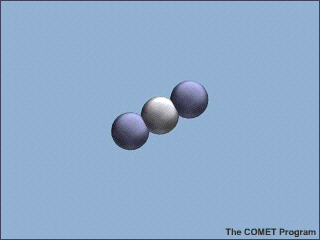About Greenhouse Gases and Energy
 Burning fossil fuels like coal, oil, and natural gas for energy releases greenhouses gases into the atmosphere, causing Earth's greenhouse effect to grow stronger, causing global warming.
Burning fossil fuels like coal, oil, and natural gas for energy releases greenhouses gases into the atmosphere, causing Earth's greenhouse effect to grow stronger, causing global warming.
Other fuels that are made from plants like biofuels and wood release greenhouse gases too. However, the greenhouse gases they release are taken out of the atmosphere by growing trees and plants, so there is little net addition of greenhouse gases to the atmosphere.
There are also sources of energy that do not release greenhouse gases to the atmosphere. Wind power, produced by large wind turbines, creates no emissions. And neither does solar power, produced by harnessing energy from sunshine with photovoltaic panels. Nuclear energy doesn't produce greenhouse gas emissions either, although there are other environmental concerns about nuclear energy such as the impact of uranium mining and the disposal of radioactive waste.
How do greenhouse gases cause warming? It all starts with the Sun. Energy from the Sun heats the Earth's surface. The heat then radiates into the atmosphere. Some of that heat makes its way out of the atmosphere and into space. Some of the heat is absorbed by greenhouse gases and then radiated back to Earth. With more greenhouse gases, more heat stays in the atmosphere. Since the start of the Industrial Revolution in the mid-18th Century, the amount of greenhouse gases like carbon dioxide, methane, and nitrous oxide have increased in our atmosphere due in large part to burning of fossil fuels. The amount of carbon dioxide in particular has increased rapidly, causing warming.
Visit the Climate and Global Change section of Windows to the Universe for more information.


